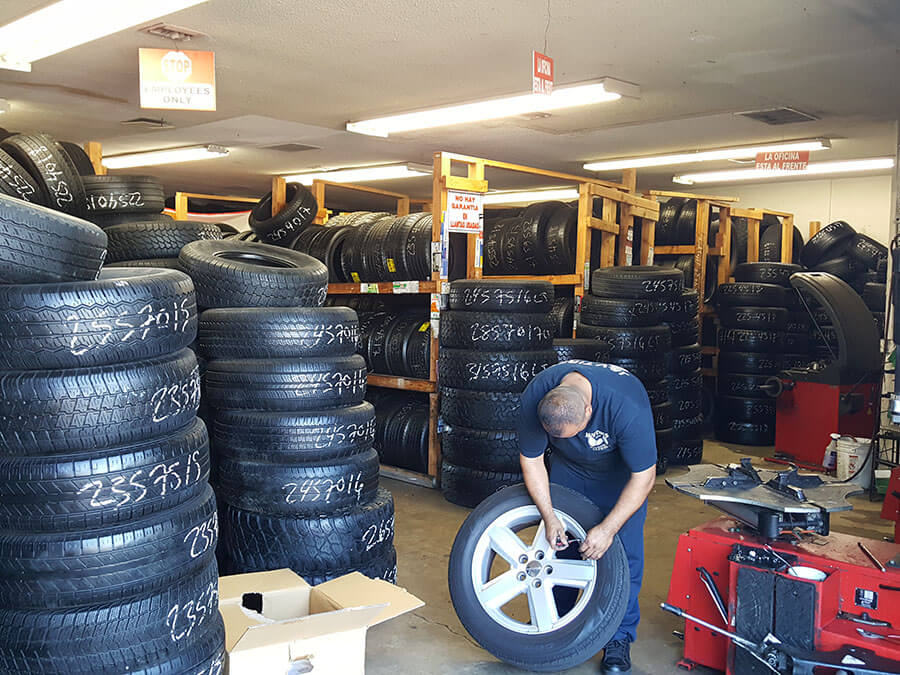Wide Selection of Tires Morris IL: Locate the Perfect Fit for Your Automobile
Tire Service: The Influence of Weather
When it comes to ensuring ideal efficiency and safety and security on the roadway, recognizing the impact of weather condition problems on tire service is vital. In this conversation, we will certainly explore the elaborate relationship between weather conditions and tire service, losing light on the relevance of weather-specific tire maintenance methods and factors to consider.
Warm and Tire Performance
When subjected to high temperature levels, tires experience changes in performance that can considerably impact vehicle security and handling. The heat created from extended driving or hot weather condition problems triggers the tire rubber to soften, causing minimized walk life and enhanced wear. As the rubber ends up being softer, the tire's hold when traveling diminishes, influencing stopping ranges and general traction. In severe situations, excessive warm can even cause tire blowouts, posturing a severe safety threat to the automobile and its passengers.
Additionally, high temperature levels can accelerate the process of tire aging, creating the rubber to weaken a lot more promptly. To mitigate the results of warm on tire efficiency, vehicle drivers should on a regular basis check their tire pressure, turn tires to make certain even wear, and examine for any kind of signs of damage.
Cold Weather Condition Results
Cold weather condition conditions can have a significant impact on tire efficiency and safety and security. In chilly weather, tires may also lose air pressure more quickly, which can impact dealing with and fuel performance.
To minimize the results of winter on tires, it is important to frequently check tire stress and inflate them to the producer's recommended degrees. Utilizing winter or all-season tires developed for cold climate problems can also boost grip and grasp on icy or snowy roads - discount tires morris il. Appropriate tire upkeep, including regular examinations for wear and damage, comes to be a lot more important during cooler months to make sure optimum performance and security
Rainy Conditions Influence
Tires with worn-out footsteps are more susceptible to hydroplaning, where a layer of water constructs up in between the road and the tire surface area, leading to loss of grip. To fight this, vehicle drivers must on a regular basis check their tires for sufficient tread depth and take into consideration investing in tires especially created for wet conditions.

Snow and Tire Safety And Security
When driving in snowy conditions, having the best tires can make a substantial distinction in security and performance. Winter season tires are created with unique rubber substances and step patterns to provide much better grip on snow and ice contrasted to all-season tires.
Along with using winter season tires, it is important to ensure they are correctly inflated. Cold weather can create tire pressure to drop, affecting traction and handling (discount tires morris il). Routinely examining and keeping the proper tire stress is essential for optimal efficiency in snowy conditions

Weather-Related Tire Upkeep
When confronted with various climate condition, appropriate tire maintenance becomes an essential facet Discover More of car safety and security and performance. Weather-related tire upkeep encompasses an array of practices intended at ensuring ideal tire feature and longevity in various climate scenarios. One crucial facet of weather-related tire maintenance is tire stress guideline. Changing temperature levels can trigger tire pressure to vary, influencing traction and fuel effectiveness. Regularly checking and readjusting tire pressure according to maker referrals is important for secure driving in changing weather. In addition, tire step depth plays a substantial role in dealing with different weather condition aspects. Tires with appropriate step depth supply much better grasp on damp or icy roads, decreasing the threat of skidding or hydroplaning. When walk wear reaches a certain depth is vital for maintaining grip and security in negative weather condition, inspecting tire step regularly and changing tires. By focusing on weather-related tire maintenance, drivers can improve safety, improve lorry efficiency, and extend the lifespan of their tires.
Conclusion
Finally, weather have a significant influence on tire performance and safety and security. From warm affecting tire stress and wear to cool weather reducing grip, it is vital to consider the weather condition when maintaining and utilizing tires. Rainy problems can decrease hold and lead to hydroplaning, while snow can enhance the threat of mishaps if tires are not correctly outfitted. Weather-related tire upkeep is important in ensuring optimum performance and safety and security when driving.
In this conversation, we will certainly explore the elaborate partnership between weather conditions and tire service, dropping light on the value of weather-specific tire maintenance practices and factors to consider.
